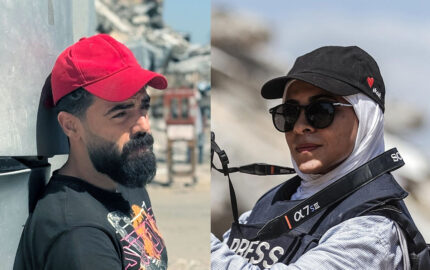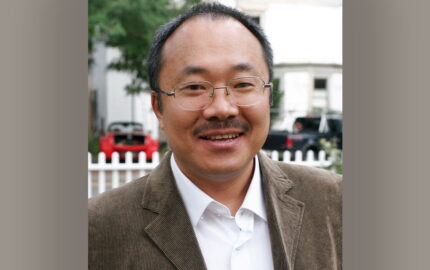CAMBRIDGE, Mass. (May 18, 2000) — Twelve U.S. journalists have been appointed to the 63rd class of Nieman Fellows at Harvard University. They will be joined by approximately 12 international journalists to be named later this month.
Established in 1938, the Nieman program is the oldest mid-career fellowship program for journalists in the world. The fellowships are awarded to working journalists of particular accomplishment and promise for an academic year of study in any part of the University. More than 1,000 U.S. and international journalists have studied at Harvard as Nieman Fellows. The new fellows and their areas of interest are:
Ken Armstrong, legal affairs writer, Chicago Tribune; the historical roots of American legal principles, and the intersection of law, history, and ethics.
Don Aucoin, television critic, The Boston Globe; effects of the cultural fragmentation of the television viewing audience; interaction between television and the Internet; how the broadcast media will contend with these issues in the future.
Kirstin Downey Grimsley, staff writer, The Washington Post; history of economics; labor laws; immigration; class, culture, race, religious, and gender issues. Funding is provided by the Stark Fellowship Fund in honor of Louis Stark, a pioneer in the field of labor reporting.
Anne Fitzgerald, agribusiness writer, The Des Moines Register; concentration of ownership in agriculture; genetic engineering issues; farm policy and how it relates to domestic and foreign markets.
Kelli S. Hewett, city hall/special projects writer, The Dothan (Ala.) Eagle; the civil rights movement, political history, sociology, religion, poverty, and the emerging Latin population.
J.R. Moehringer, Atlanta bureau chief, Los Angeles Times; American civilization, with emphasis on the post-World War II period; sociology of organizational behavior; cultures faced with revolutionary change.
Mark Pothier, executive editor, MPG Newspapers, Plymouth, Mass.; community newspapers as mirrors and conduits of the community, and what can be done to solidify their positions as local institutions.
Linda Robinson, Latin America bureau chief, US News & World Report; U.S. foreign policy, the evolving practice of journalism, Latin American culture, and the Latinization of the United States.
Ron Stodghill II, midwest bureau chief, based in Chicago, Time; forces that have inspired individuals into political activism and leadership, and their impact on society; government and politics.
Andrew Sussman, senior program producer, "The World," a co-production of the BBC World Service, Public Radio International, and WGBH Boston; Europe in the 21st century; changing national identities; economic and legal aspects of the European Union’s development.
Peter Turnley, photojournalist, based in Paris, Newsweek; interactive media; computer science; public service and social and political science; business management and leadership.
Nuri Vallbona, photojournalist, Miami Herald; the society and history of Cuba, Haiti, and other Caribbean countries; and writing.
The selection committee included K. Anthony Appiah, Professor of Afro-American Studies and of Philosophy, Harvard University; Bill Kovach, committee chair and Nieman Foundation Curator; and Melanie Sill, managing editor, The News & Observer, Raleigh, N.C., and Nieman Fellow ’94.
Established in 1938, the Nieman program is the oldest mid-career fellowship program for journalists in the world. The fellowships are awarded to working journalists of particular accomplishment and promise for an academic year of study in any part of the University. More than 1,000 U.S. and international journalists have studied at Harvard as Nieman Fellows. The new fellows and their areas of interest are:
Ken Armstrong, legal affairs writer, Chicago Tribune; the historical roots of American legal principles, and the intersection of law, history, and ethics.
Don Aucoin, television critic, The Boston Globe; effects of the cultural fragmentation of the television viewing audience; interaction between television and the Internet; how the broadcast media will contend with these issues in the future.
Kirstin Downey Grimsley, staff writer, The Washington Post; history of economics; labor laws; immigration; class, culture, race, religious, and gender issues. Funding is provided by the Stark Fellowship Fund in honor of Louis Stark, a pioneer in the field of labor reporting.
Anne Fitzgerald, agribusiness writer, The Des Moines Register; concentration of ownership in agriculture; genetic engineering issues; farm policy and how it relates to domestic and foreign markets.
Kelli S. Hewett, city hall/special projects writer, The Dothan (Ala.) Eagle; the civil rights movement, political history, sociology, religion, poverty, and the emerging Latin population.
J.R. Moehringer, Atlanta bureau chief, Los Angeles Times; American civilization, with emphasis on the post-World War II period; sociology of organizational behavior; cultures faced with revolutionary change.
Mark Pothier, executive editor, MPG Newspapers, Plymouth, Mass.; community newspapers as mirrors and conduits of the community, and what can be done to solidify their positions as local institutions.
Linda Robinson, Latin America bureau chief, US News & World Report; U.S. foreign policy, the evolving practice of journalism, Latin American culture, and the Latinization of the United States.
Ron Stodghill II, midwest bureau chief, based in Chicago, Time; forces that have inspired individuals into political activism and leadership, and their impact on society; government and politics.
Andrew Sussman, senior program producer, "The World," a co-production of the BBC World Service, Public Radio International, and WGBH Boston; Europe in the 21st century; changing national identities; economic and legal aspects of the European Union’s development.
Peter Turnley, photojournalist, based in Paris, Newsweek; interactive media; computer science; public service and social and political science; business management and leadership.
Nuri Vallbona, photojournalist, Miami Herald; the society and history of Cuba, Haiti, and other Caribbean countries; and writing.
The selection committee included K. Anthony Appiah, Professor of Afro-American Studies and of Philosophy, Harvard University; Bill Kovach, committee chair and Nieman Foundation Curator; and Melanie Sill, managing editor, The News & Observer, Raleigh, N.C., and Nieman Fellow ’94.


